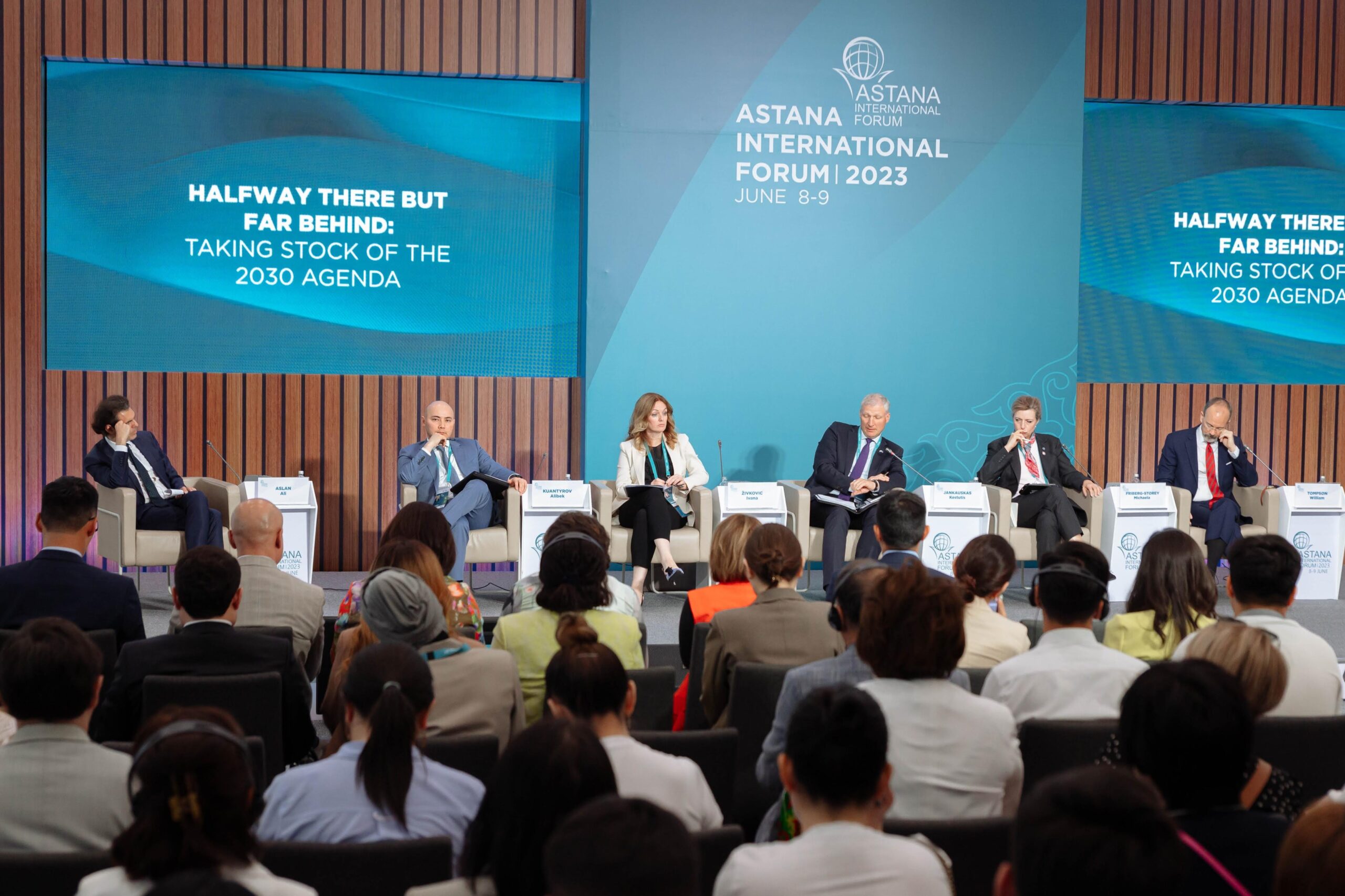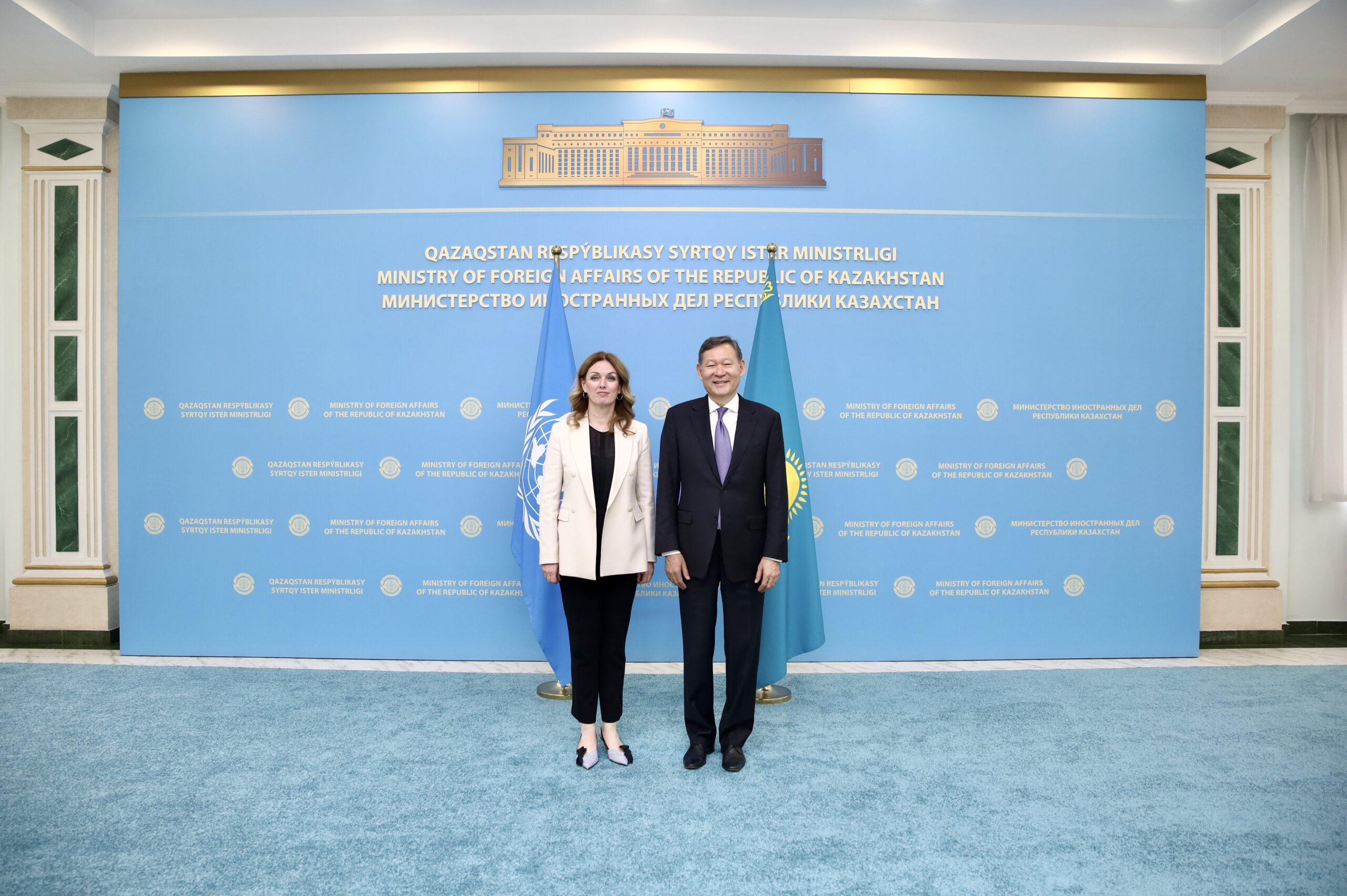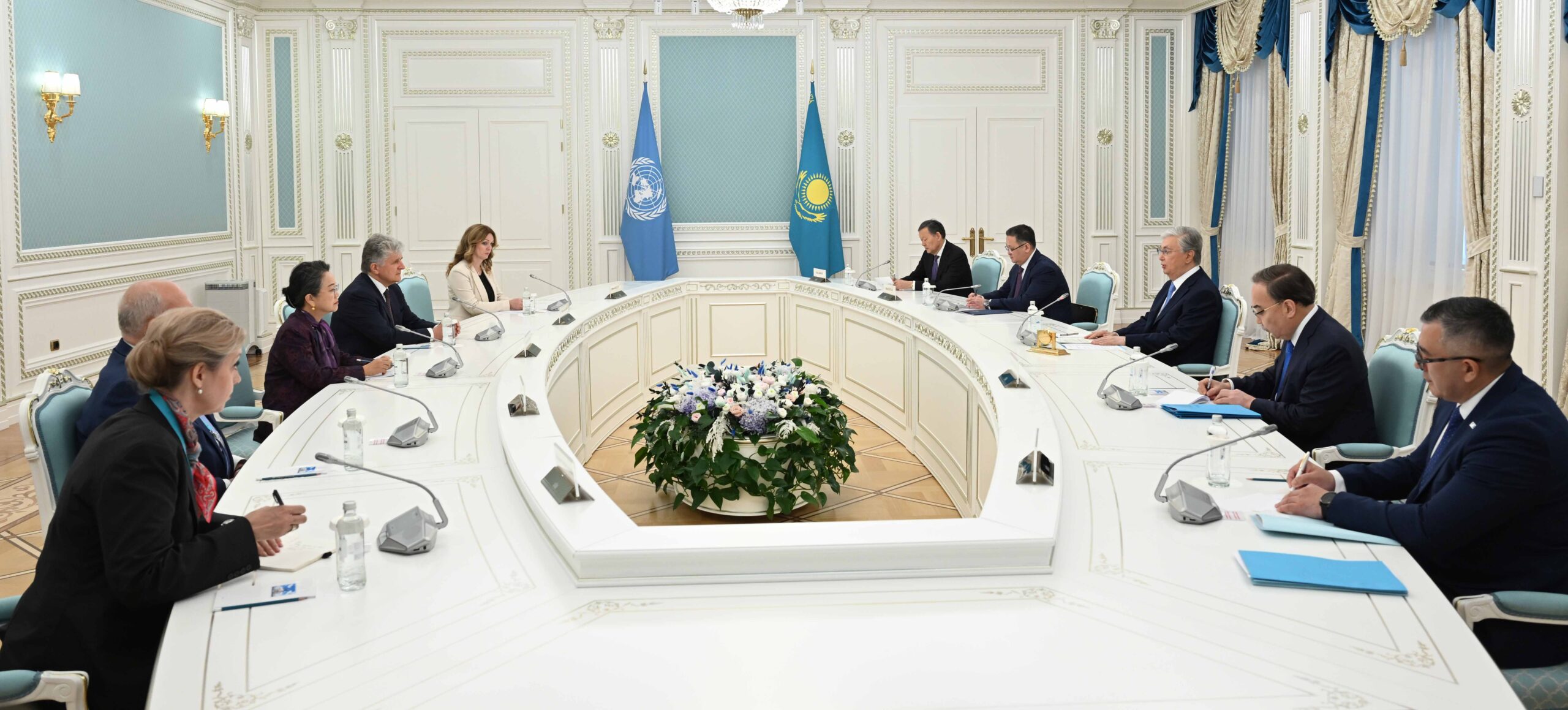Ivana Živković, the United Nations Development Programme’s (UNDP) Regional Director for Europe and the Commonwealth of Independent States (CIS) and UN Assistant Secretary-General, visited Kazakhstan on June 8-9 to participate in the Astana International Forum (AIF). As part of the UN delegation, she also met with President Kassym-Jomart Tokayev. Živković spoke about the organization’s priorities, prospects for cooperation with Kazakhstan and impressions of the AIF in an interview with The Astana Times.
What are the UNDP’s key priorities and initiatives in promoting the achievement of the SDGs in Kazakhstan?
Our priorities revolve around promoting new ideas and integrated solutions to overcome the toughest challenges hindering the achievement of the Sustainable Development Goals (SDGs), with an eye on the fast-approaching deadline of 2030.

Ivana Živković adresses the panel session at the Astana Intenrational Forum. Photo credit: UNDP Kazakhstan.
We support digital reforms in public administration and civil service by providing policy advice and technical assistance. Through initiatives such as the Astana Civil Service Hub, we promote civil service excellence and knowledge sharing on public administration reform.
We work consistently with the government of Kazakhstan to ensure that vital public services reach everyone, especially those in need. Over the years, our initiatives have aimed to strengthen social protection systems and bolster their capacity to respond effectively to various social challenges. A significant milestone in our journey has been the launch of the Digital Family Card last year. This innovative tool helps to more effectively provide state support to the most vulnerable families in a proactive manner.
We dedicate significant efforts towards the empowerment of women. Over the last three decades in Kazakhstan, our commitment to gender equality and women’s empowerment has grown and evolved into a comprehensive strategy, recognizing that sustainable development is not achievable without the full and active participation of women in society and the economy. We are helping women gain the skills and resources they need to succeed at work, engage in politics, and participate more actively in STEM fields.
In 2023, UNDP will support the government of Kazakhstan in promoting the regional development agenda in the newly established regions of Ulytau, Abai and Zhetysu. Our key focus will be on aligning and mainstreaming the SDGs into local planning programs to improve the quality of life for the most vulnerable people. Through tailored projects, we aim to provide essential support to local authorities to address pressing issues and drive sustainable development in priority local areas.
Additionally, UNDP also plays a pivotal role in supporting SDG Financing, a vital aspect of sustainable development. Through a collaborative partnership with other countries in Central Asia, we are developing robust methodological tools for assessing and monitoring the state budget’s capacity to finance SDG implementation.
It seems that climate resilience is a topic of substantial importance worldwide. Could you provide details on UNDP’s contribution to this domain?
UNDP is supporting Kazakhstan in integrating climate change adaptation priorities into the national plans. This involves securing water and food resources, protecting economic infrastructure from extreme weather and disasters, and preserving natural resources.

Ivana Živković and First Deputy Foreign Minister of Kazakhstan Kairat Umarov. Photo credit: UNDP Kazakhstan.
We are also supporting Kazakhstan’s goal to become carbon neutral by 2060 by encouraging investments in environmentally friendly activities. UNDP offers a toolbox of non-grant instruments aimed at improving the accessibility and affordability of green finance for small and medium-sized businesses. Energy efficiency and renewable projects concessional funding, loan guarantee schemes and green bonds allowed to mobilize private sector investments in sustainable development.
Our efforts extend beyond climate action to encompass biodiversity and ecosystem protection, as well as the empowerment of local communities in protected areas. We help combat desertification and restore degraded lands by promoting sustainable land management practices. Our specific loan program encourages the growth of small and medium-sized enterprises in rural areas while leveraging digital tools to advance ecotourism and contribute to local economic development.
UN agencies emphasize the key principle, Leave No One Behind, in implementing the 2030 Agenda. How does UNDP promote this principle, and what progress has been made so far?
UNDP remains committed to the principle of “leaving no one behind,” a concept at the core of our Sustainable Development Goals and the 2030 Agenda. We believe all individuals should have an equal opportunity to benefit from sustainable development, and we prioritize supporting those who are most in need.

UN delegation meeting with President Tokayev in Akorda on June 9. Photo credit: Akorda.
In line with this commitment, we have collaborated with Kazakhstan in the launch of the Digital Family Card (DFC). This innovative approach collects, integrates, and processes information to identify at-risk groups requiring social protection support. The DFC serves as a tool to prevent families from falling into poverty and provides local decision-makers with crucial information to assist those in urgent need. The methodology of the DFC is based on the Multidimensional Poverty Index (MPI), developed by UNDP and the Oxford Poverty and Human Development Initiative (OPHI) at Oxford College. The MPI goes beyond income-based measures of poverty and assesses various dimensions of people’s lives, such as access to education, health services, housing, sanitation, and electricity. By employing this evidence-based approach, the DFC helps identify populations in need and enables governments to address vulnerabilities effectively.
We strongly believe that promoting women’s empowerment and gender equality is a critical means to implement the SDGs and leave no one behind. In collaboration with UNRCCA (The United Nations Regional Centre for Preventive Diplomacy for Central Asia), UNDP launched the Central Asian Women Leaders’ Caucus in December 2020. In 2023, the Caucus is chaired by Kazakhstan. This high-level platform supports women in achieving greater political, economic, and social roles, enabling them to influence decision-making processes on peace, stability, and sustainable development in the region. The Caucus aims to inspire women to act as change agents at various levels, thereby advancing gender equality in Central Asia.
In Kazakhstan specifically, UNDP supports the government in promoting gender equality in the labor market, fostering equal opportunities, and providing training and resources for women in entrepreneurship. Entrepreneurship centers opened in all regions of Kazakhstan, and UNDP-subsidized apprenticeship programs provide critical resources such as training, funding, and mentoring to help women on their path to becoming successful entrepreneurs.
What are your impressions of attending the Astana International Forum?
To me, one notable aspect of the AIF this year is its expanded scope, which now encompasses a broader set of issues beyond economic matters. It has become a platform for discussing regional security, international relations, and political topics of global significance. This shift highlights Kazakhstan’s commitment to addressing multifaceted challenges and fostering constructive dialogue on pressing global and regional issues.
What was reassuring to see about the AIF was its role as a platform for multilateralism. It brings together political leaders, policymakers, experts, and stakeholders from various countries and sectors, providing a valuable opportunity for meaningful exchanges and collaboration. In my opinion, the AIF as a comprehensive and inclusive convening platform has the potential to be successful in promoting dialogue, fostering partnerships to explore innovative solutions, and shaping the global agenda.
Source : Astanatimes










